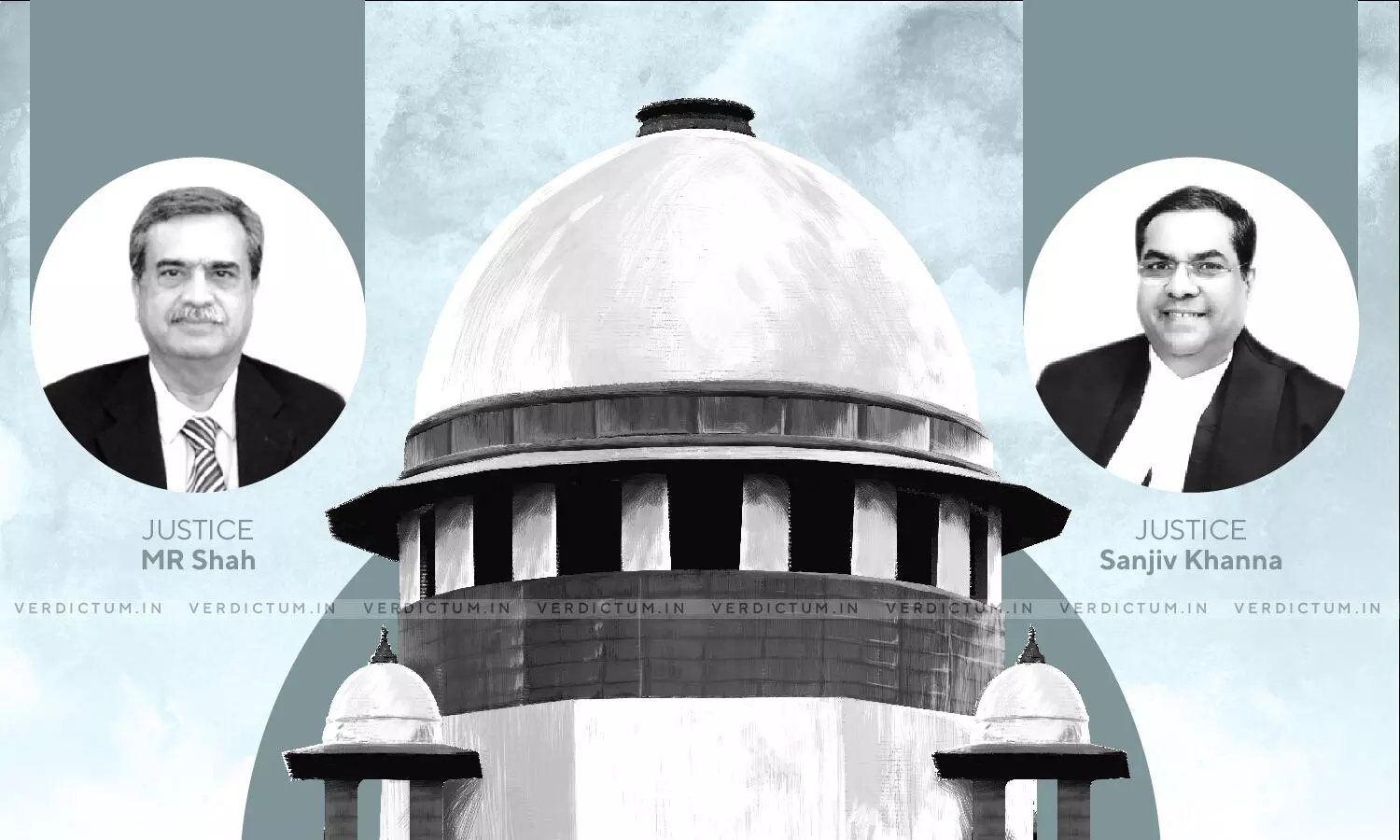
SC Interprets Contract Clause For Conciliation Attempt Before Arbitration In 'Practical Manner' To Allow NHAI To Raise Counter Claim
 |
|A Supreme Court Bench of Justice MR Shah and Justice Sanjiv Khanna held that the counter claim of a party cannot be rejected simply on the ground that the claims were not notified before the invocation of arbitral proceedings.
"Clauses 26.1 and 26.2 have to be interpreted in a pragmatic and practical manner, as they require that the parties must at first try to settle, resolve and even try conciliation but when the procedure under Clauses 26.1 and 26.2 fails to yield desired result, in the form of settlement within the period specified in Clause 26.2, the Dispute can be resolved through arbitration in terms of Clause 26.3", the Court held.
ASG Ms Madhavi Diwan appeared for the Appellant National Highway Authority of India (NHAI) and Senior Advocate Mr Nakul Dewan appeared for Respondent Contractor before the Court.
In this case, the NHAI and the Respondent had entered into a Contract and the Respondent was in continuous breach of specific obligations under the Contract.
Eventually, the NHAI issued a notice of termination and expressly stated that his is without prejudice to its right to claim damages.
Aggrieved, the Respondent invoked the dispute resolution mechanism provided by the Contract. However, the parties could not reach settlement.
The Respondent invoked the arbitration mechanism under Clause 26 of the Contract and thereafter, the tribunal was constituted.
The NHAI filed its Statement of Defence roughly two months after the Respondent filed its Statement of Claim, where it reiterated its right to claim damages and also stated that it would prefer a counter-claim. The NHAI requested the Arbitral Tribunal for extension of time for filing counter-claim. This request was rejected by the Tribunal.
The NHAI then moved an application under Section 23(2A) of the A&C Act, to place its counter-claim. However, this was also rejected by the Tribunal on the grounds that in terms of Clause 26 of the Contract, the claims were to be notified and an attempt at amicable settlement was to be made before invocation of arbitration and the NHAI did not specify its claims at that stage.
Aggrieved, the NHAI approached the High Court. However, the Appeal was dismissed and therefore, the NHAI filed an SLP against the order.
The Supreme Court noted that Clause 26 of the Contract was in the nature of conciliation and held that "On a true and fair interpretation of Clause 26, failure to resolve the dispute (in the present case, the termination of the Contract by the NHAI), the arbitration proceedings would be maintainable. That does not mean that only a claim and/or counter claim as sought to be contended on behalf of the Contractor now would alone be entertained."
Further, the Supreme Court opined that both the Arbitral Tribunal as well as the High Court failed to appreciate the difference between the expressions "claim", which may be made by one side and "Dispute", which by its definition has two sides.
The Supreme Court also held that the grounds on which the Tribunal had rejected the NHAI's application can be said to be contrary to the intent between the parties to resolve the dispute through conciliation first. To that end, it was opined that "In the facts and circumstances of the case, by such a narrow interpretation, the Arbitral Tribunal has taken away the valuable right of the NHAI to submit counter claim, which is of a very huge amount thereby negotiating the statutory and contractual rights of the NHAI and paving way for a piecemeal and inchoate adjudication."
The Court found that if the counter claim made by the NHAI in the proceedings arising out of the claims made by the Respondent was not allowed, it may lead to parallel proceedings before various fora.
Opining that "While passing the impugned judgment and order, the High Court has lost sight of the aforesaid aspect, which ought to have been considered while considering the request on behalf of the NHAI to place on record its counter claim.", the Supreme Court set aside the judgment and order of the Tribunal and High Court, and allowed the NHAI to file its counter claim.
Click here to read/download the Judgment